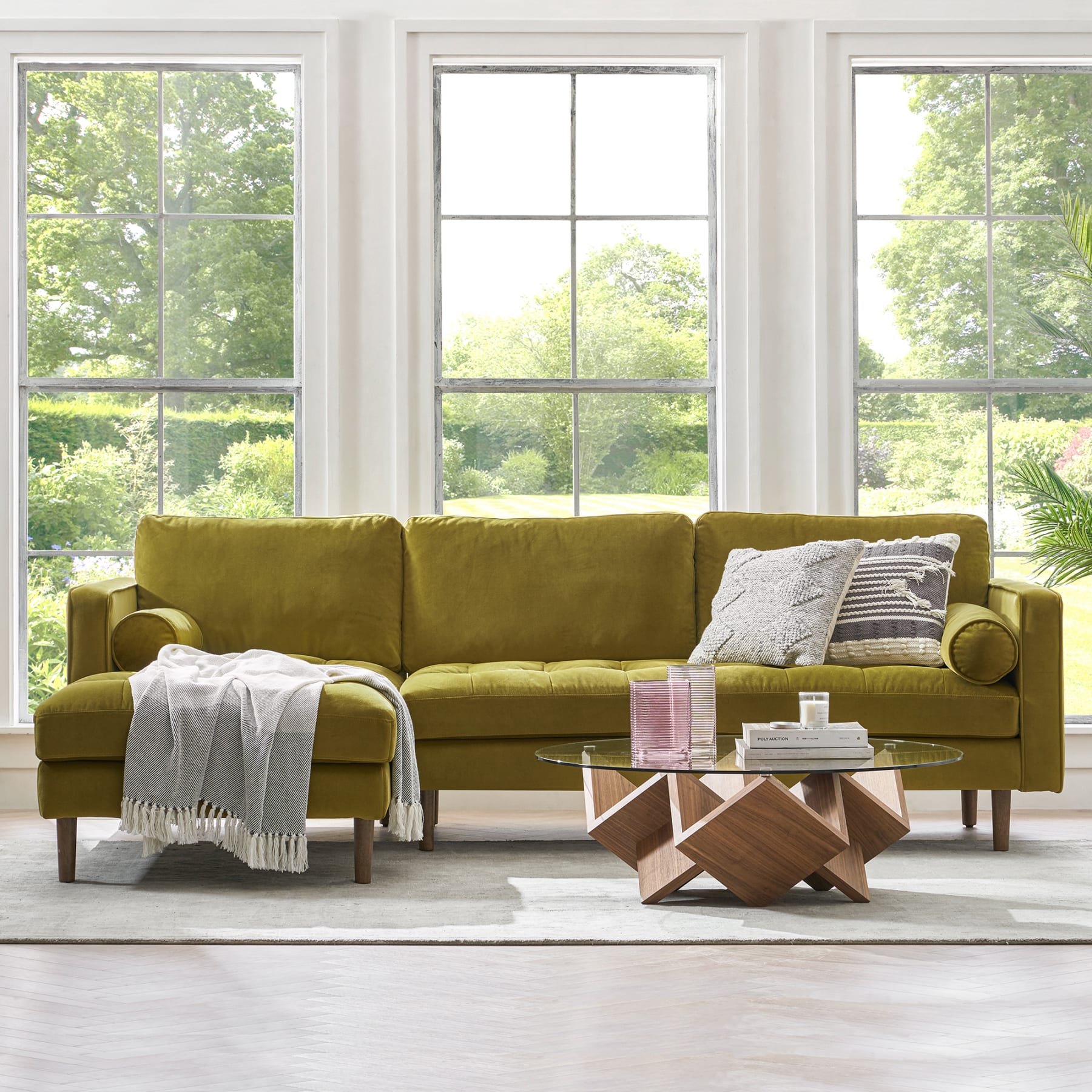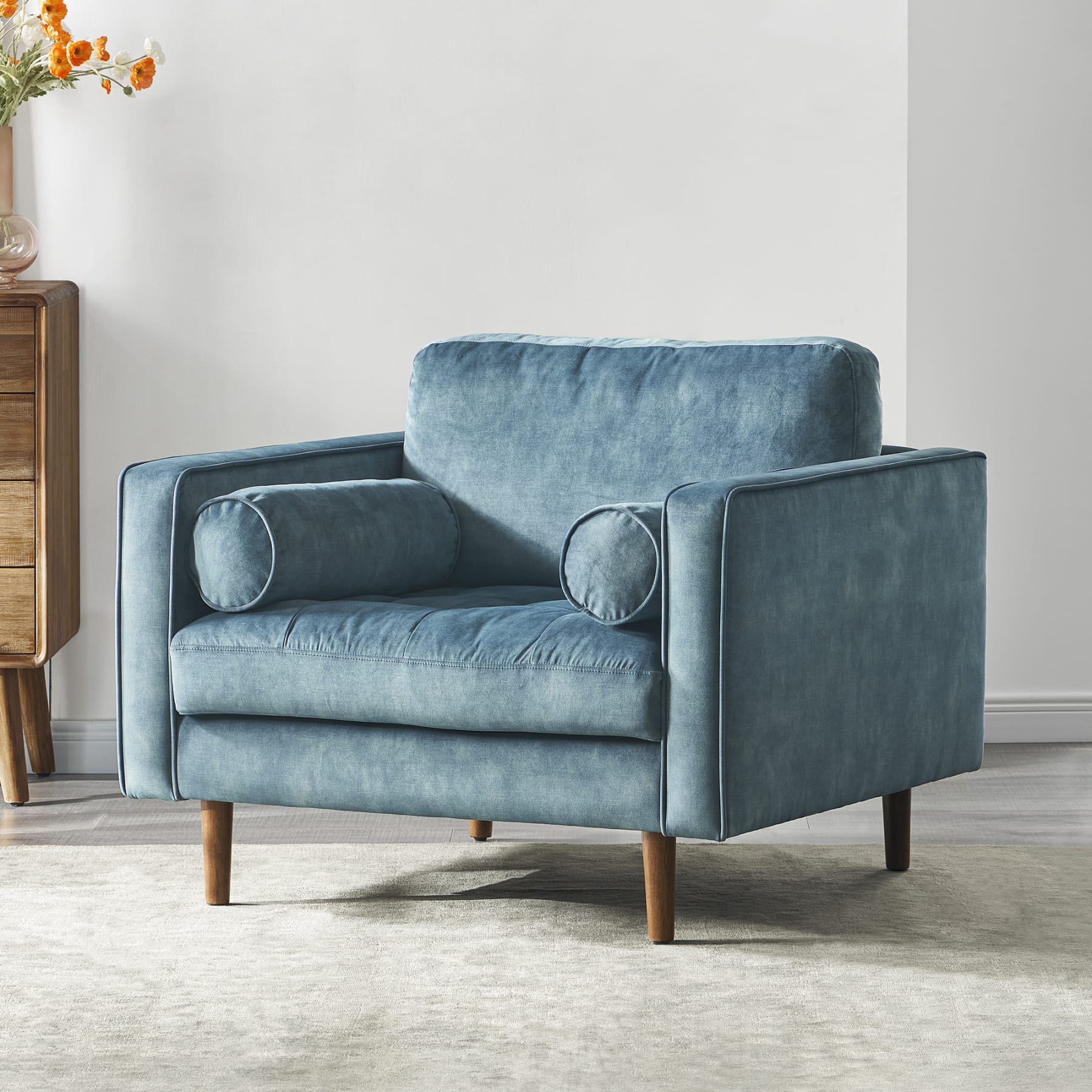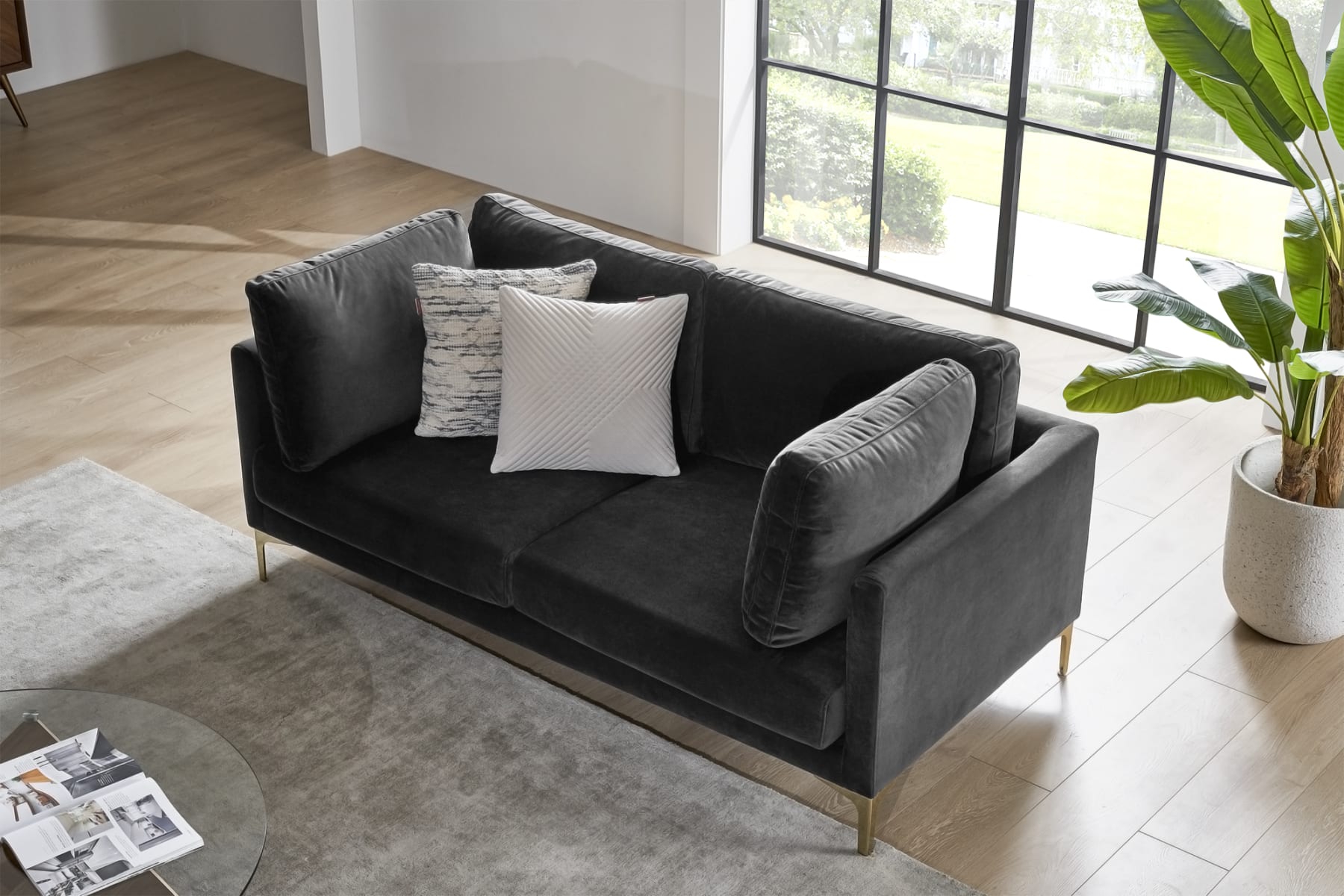
Are Velvet Couches High Maintenance?
Are velvet couches high maintenance?
Velvet is a soft and luxurious material, well known for its elegance and sophistication. However, it does also have a reputation for being high maintenance and difficult to clean, which is why many tend to shy away from this sofa material in the home. But given the advancements in cleaning products and fabric technology, are velvet sofas still considered high maintenance? Have developments in how fabrics are produced and pre-treated changed the way velvet responds to higher levels of use, such as for a sofa or armchair?
We are going to attempt to answer these questions in this guide by taking a look at the developments in how velvet is made, and we’ll discuss new cleaning techniques that can be used to keep your velvet sofa looking in great shape. And to top it off, we’ll also look at what else you can do to keep your velvet looking its best.

The Owen Chaise Sectional in Olive Gold Velvet feels like a burst of sunshine in your living space.
Velvet sofa materials: what’s new?
Traditionally, velvet has been made from cotton or silk, weaved and brushed in a certain way to provide the soft touch and sheen of the finish. However, as well as cotton and silk velvet you can also get synthetic velvets made from materials like polyester. These modern types of velvet are much harder wearing and stains don’t penetrate the fabric as deeply, which is always great news for households with kids or pets. Cotton or silk velvets are much more delicate and susceptible to staining and marking. They do look and feel beautiful but are perhaps not ideal if you have busy and bustling family home.
Cleaning methods and techniques are different for each type of velvet. If you have an existing velvet sofa and are not sure how to go about cleaning it, then check the label for its care guide.
How to clean velvet sofas
Maintaining a clean velvet sofa doesn’t have to be too taxing. In general, care for velvet sofas is the same as care for sofas made using other materials. Try to keep them free from dust and debris with regular vacuuming using the correct attachments, and be careful with staining liquids such as coffee and red wine.

An oversized velvet armchair like the Madison is a great place to start if you’re not sure about making the leap toward a velvet sofa yet.
There are also velvet pre-treatments available that allow you to offer some protection to the fabric. However, accidents do happen, and sofas are always likely to get stained and marked, no matter how careful you are. If this does happen you can clean velvet gently and effectively through steaming. This prevents compression of the fabric which can happen with aggressive scrubbing. In fact, you can even use the steam setting of your iron to remove compressed sections from the fabric. Use the steaming iron in the opposite direction to the pile of the fabric but make sure it is on a very low setting and place another fabric between the velvet and the hot surface of the iron.
Despite our best efforts, spills are unavoidable especially when we’re hosting friends and families. When that happens, there’s no need to panic. Simply use spot cleaning techniques such as absorbent paper towels and cloths to soak up any excess. Dab gently and remember not to rub or scrub, as this will drive stains into the fabric.

The Adams in Jet Black Velvet would appeal to the minimalists.
You should also remember to try, as much as possible, to keep velvet out of direct sunlight. Velvet is prone to fading when exposed to sun so try and position in a way to prevent this from happening. If this is not possible, then you can always cover exposed areas with a throw or cushions.
These are the fundamentals of fabric care for velvet sofas. As long as you stick to these basic principles and maintaining your velvet sofa can be as breezy as a walk in the park.
Velvet sofa pros and cons
There are many obvious pros of choosing a velvet sofa. They look chic and sophisticated, with a soft touch sheen that is warm and cozy in any living space. Velvet sofas look great with other fabrics in the room such as rugs and curtains.
Although they do have a reputation for being hard to maintain, follow the few basic principles above, choose a synthetic velvet and they should be no harder to look after than any other fabric choice.
Are velvet sofas difficult to maintain?
Pure cotton or silk velvet can be sensitive and prone to staining or marking, especially if you have kids or pets in the house. But modern synthetic velvet fabrics are much tougher and harder wearing, as well as being much easier to clean, making them ideal for any living space.
Is velvet furniture easy to clean?
There are certain methods and cleaning techniques you need to apply to different types of velvet. But the basics are always the same. Do not rub or scrub in stains or marks but lightly dab any excess away. You can then use steam cleaning to remove the stain and to restore any compressed areas of the velvet.
How to maintain a velvet sofa?
Keep it out of direct sunlight and make sure you regularly vacuum any debris or dust from the surface. Be sensible about how you use your sofa and deal with any staining or marks as soon as you can. This will all help to extend the life of your velvet sofa.
































